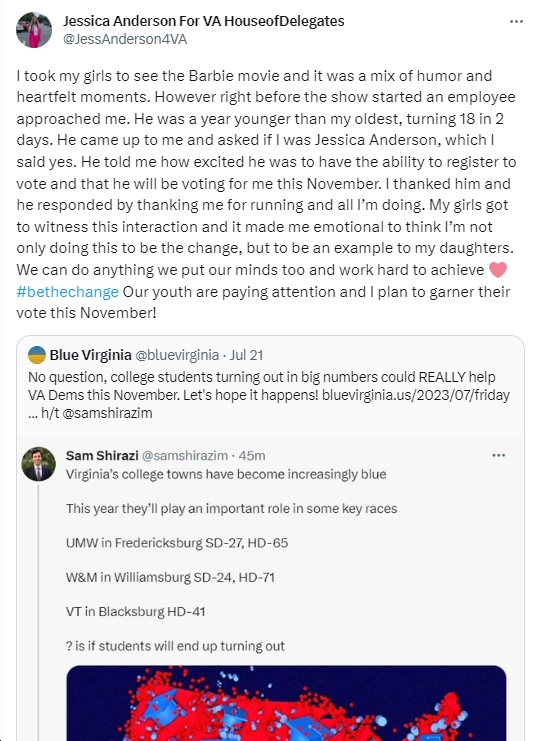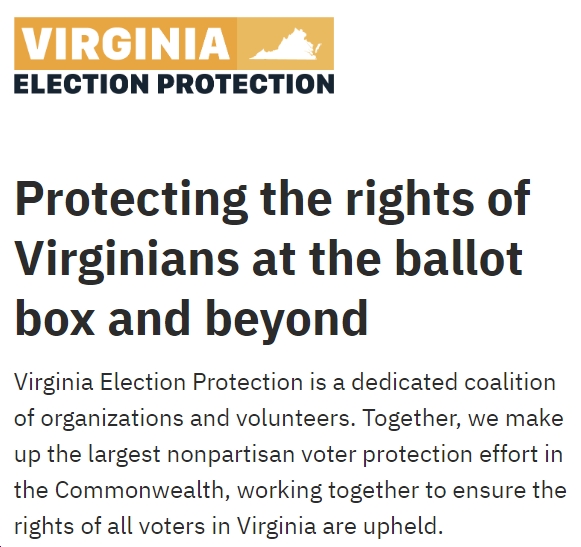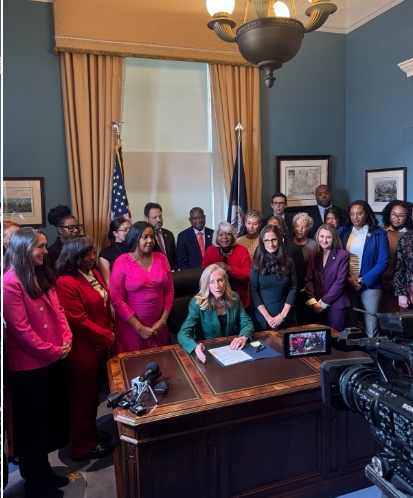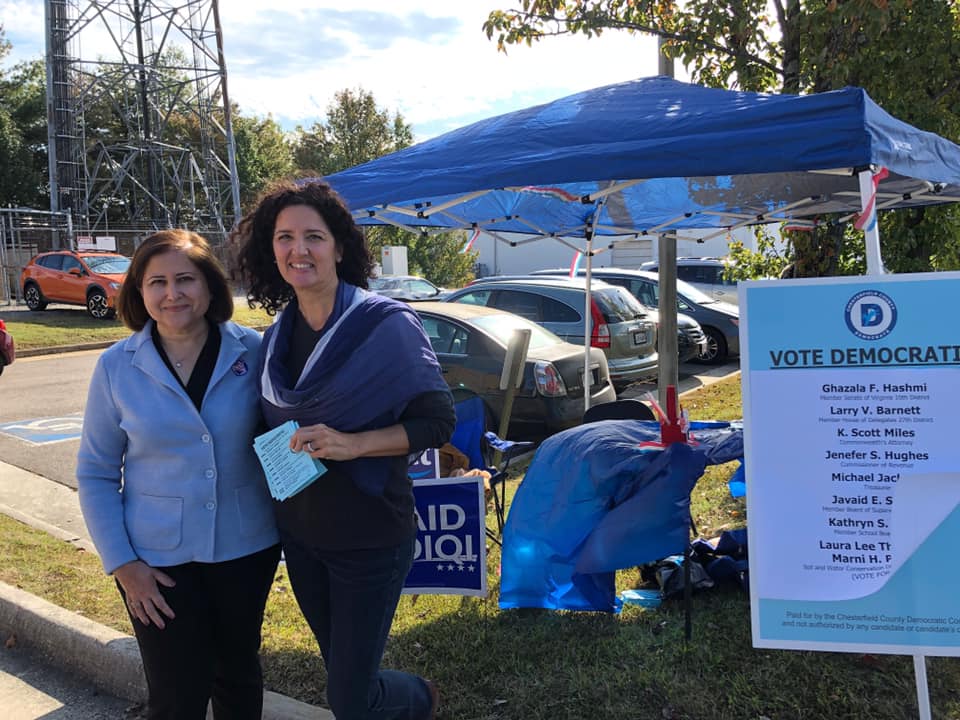by Cindy
Hundreds of Wisconsin voters Tuesday risked contracting coronavirus standing in line en masse to vote at over-crowded precincts—after hundreds of precincts had to be shut down due to precinct workers themselves not wanting to risk their lives to work the polls. This was pretty much a complete elections nightmare. Voters, denied a last-minute reprieve by the Wisconsin and US Supreme Court, had to choose between giving up their franchise, their right to cast a ballot in the primary, and putting their health at risk.
With upcoming elections in Virginia–already ranked the 49th hardest place to vote in the US– there is concern that we might face similar difficulties in ensuring fair elections. Monday night, Delegate Marcus Simon hosted a virtual town hall to talk about some of the options available to address these issues, with his guests, Delegate Schuyler VanValkenburg, City of Falls Church Registrar Dave Bjerke, and National Vote at Home Institute CEO, Amber McReynolds. What follows is a summary of the conversation.
Voting by mail seems like a natural solution to voting during a pandemic. To be clear, there are (at least) three different levels of vote by mail: 1) voters can, of their own accord, choose to apply for an absentee ballot, which is then mailed to them, and which they then return by mail; 2) all voters can be automatically mailed an absentee ballot application, which they can choose to fill out and return, and then an absentee ballot is mailed to them, which they return by mail; 3) all voters can be automatically mailed a ballot, which they can return by mail, or drop off in person.
While all states use some type of vote by mail for at least some of their voters (i.e. overseas, military), there is a lot of variation in how extensively it is used—Washington state is at 100% by mail voting, states like Ohio are at around 25%. Typically, and probably ideally, a state would transition slowly and gradually from mainly in-person voting to vote by mail, over several years. This would allow time for registrars and Boards of Election to obtain the tools and to have logistics in place for high amounts of vote by mail, and time for the large amount of educating and learning necessary to ensure that voters are comfortable with the process.
Ultimately, in those states that have made vote by mail the primary method, voters and officials are pleased with the outcomes. When ballots are mailed to voters automatically well in advance of the election, voters have the opportunity to contact their registrar if they don’t receive one, and find out what went wrong—for example, they might not be registered at their current address, and would be able to address the problem in time to vote, as opposed to showing up to the polls on Election Day and finding it out too late. There are substantial cost savings over in person voting, with fewer machines and less infrastructure required, and far lower staffing needs at polling places. (Ms. McReynolds estimated that in person costs around ten times what by mail voting costs.) There is increased transparency with vote by mail, as the processing and counting of ballots is usually in a central location, with party officials in attendance, and even livestreaming of the process so that the public can observe. Additionally, pre-paid postage can enhance security, by streamlining the returns process, and ensuring that fewer ballots get lost in the mail due to insufficient postage.
But now, faced with a pandemic, vote by mail might be the only way to ensure a fair election in Virginia, and the emergency might necessitate a much less incremental approach to transitioning Virginia to vote by mail. So, what opportunities are there for making such changes, now that the legislative session is already over? There are a few ways we might be able to:
- During the upcoming April 22nd reconvene session, Governor Northam can send to the legislature recommendations for amendments to any of the elections-related bills that were passed this session, including “amendments” that fully substitute new language altogether. The amendments have to be germane–on the same general topic. A few such bills that could be amended to address the emergency voting we may face in November include HB207 (opt-in by mail voting provision, with 2021 enactment date as passed), HB1 (no excuse absentee voting), HB238 (extending date mailed absentee ballots must be received by), or HB242 (emergency absentee voting requests).
- It is likely that there will be a special session perhaps in August, to address the budget, since much of the spending that was planned will have to be suspended or cut due to COVID-19 related spending and revenues much lower than planned due to business closings and unemployment. At this special session, the legislature can adopt rules to broaden the scope of what will be addressed, and could take up new legislation related to voting and elections.
- Lastly, although Virginia is a state that does not give explicit authority to the Governor to change laws in the case of emergencies, it does not prohibit such actions either, and it is believed that the Governor may in fact have fairly broad emergency powers. Most likely, Attorney General Herring will weigh in at some point on what emergency powers the Governor has under Virginia Constitutional law.
While we all hope that the threat of COVID-19 has passed by November and that we can safely go to the polls without fear of infection, that may not be the case. Since we can’t know for sure, it’s really important that we plan for the worst now—in fact, Mr. Bjerke suggested that to have enough time to properly prepare for the massive effort of having almost all voters vote by mail this November, it would be best to know how we will proceed by the end of this month. Additionally, while vote by mail saves costs in the long run over voting in person, there are heavy upfront infrastructure costs we’re likely to incur in making the transition so quickly, and it may only be possible if federal stimulus funds come in for the election. With Governor Northam’s staff so busy with COVID-19 related work and planning, it’s really helpful to have our legislators thinking through how to address voting issues, and this town hall was a good start. If you’d like to hear it in its entirety, you can do so here.

